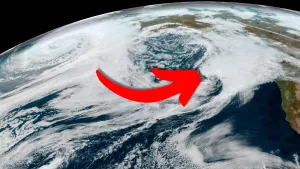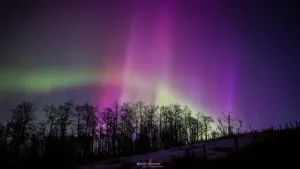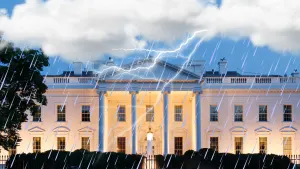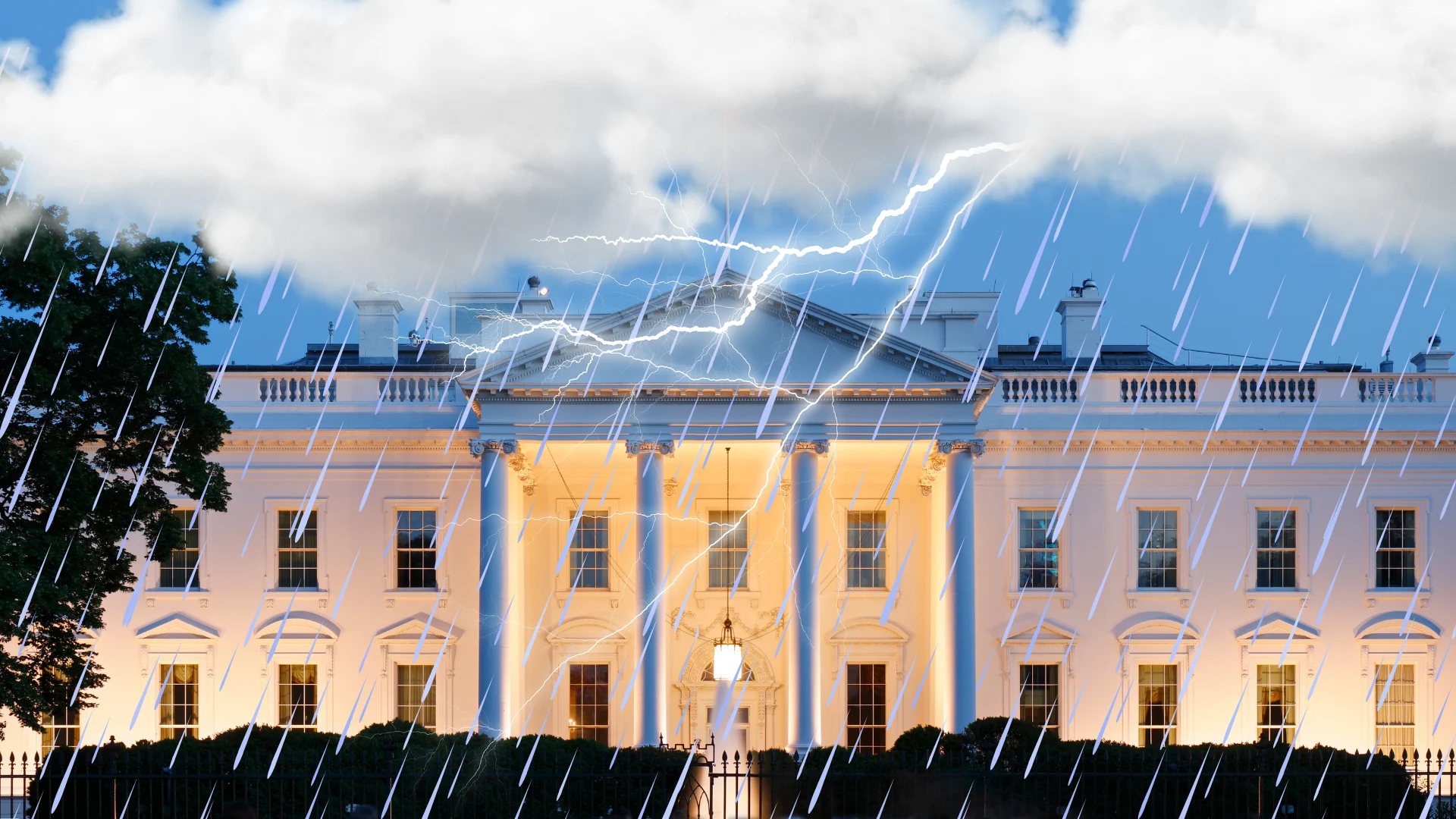
How weather could swing the 2024 U.S. presidential election
Foul weather could cast a deciding vote in the upcoming presidential election in the United States
Voting is underway in one of the world’s most consequential elections of the year.
More than one hundred million Americans will decide by November 5 whether to make Vice President Kamala Harris the first woman to lead the U.S., or to send former president Donald Trump back to the White House for another four-year term.
Weather can play a significant role in the outcome of elections. Here’s a look at how severe weather, Hurricane Helene, and a myriad of other factors could act like a swing vote in the race.
MUST SEE: Seven times weather unexpectedly changed the course of history
Why weather can swing an American election
How can weather affect the outcome of the presidential race when the United States is such a large country? American presidential elections are won and lost on the state level rather than through a national popular vote.
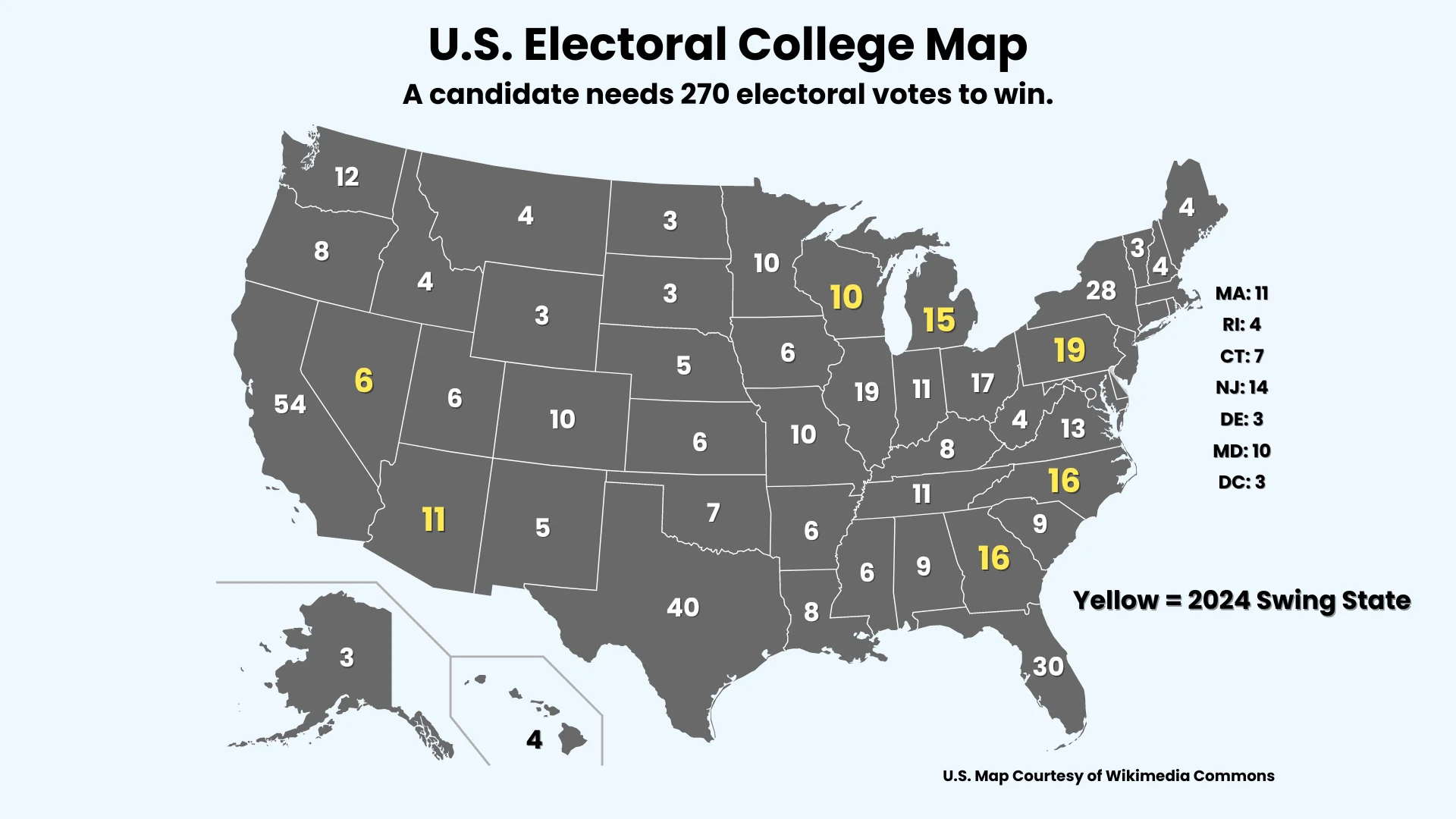
The election is decided through a complex system known as the Electoral College. There are 538 electoral votes spread proportionally among the 50 states and Washington, D.C. With a few exceptions, the candidate who wins a state receives that state’s electoral votes. A candidate needs 270 electoral votes to win the presidency.
This process imparts oversized importance to a handful of swing states throughout the country, where polling shows the results could land on a razor-thin margin either way. The main swing states in the 2024 election are widely considered to be Arizona, Georgia, Michigan, Nevada, North Carolina, Pennsylvania, and Wisconsin.
Bad weather affecting one or more swing states can throw an unexpected wrench in the outcome of a close contest.
Fall storms are a wildcard, but early voting eases the pain
The middle of fall is a tough time of year if you’re hoping for clear skies and smooth sailing.
November is full of tumult in the atmosphere. Nor’easters can roar up the eastern seaboard while stiff gales buffet the Great Lakes. Tornado outbreaks and tropical systems can lurk over the south while the West Coast may contend with wildfires and flash floods.
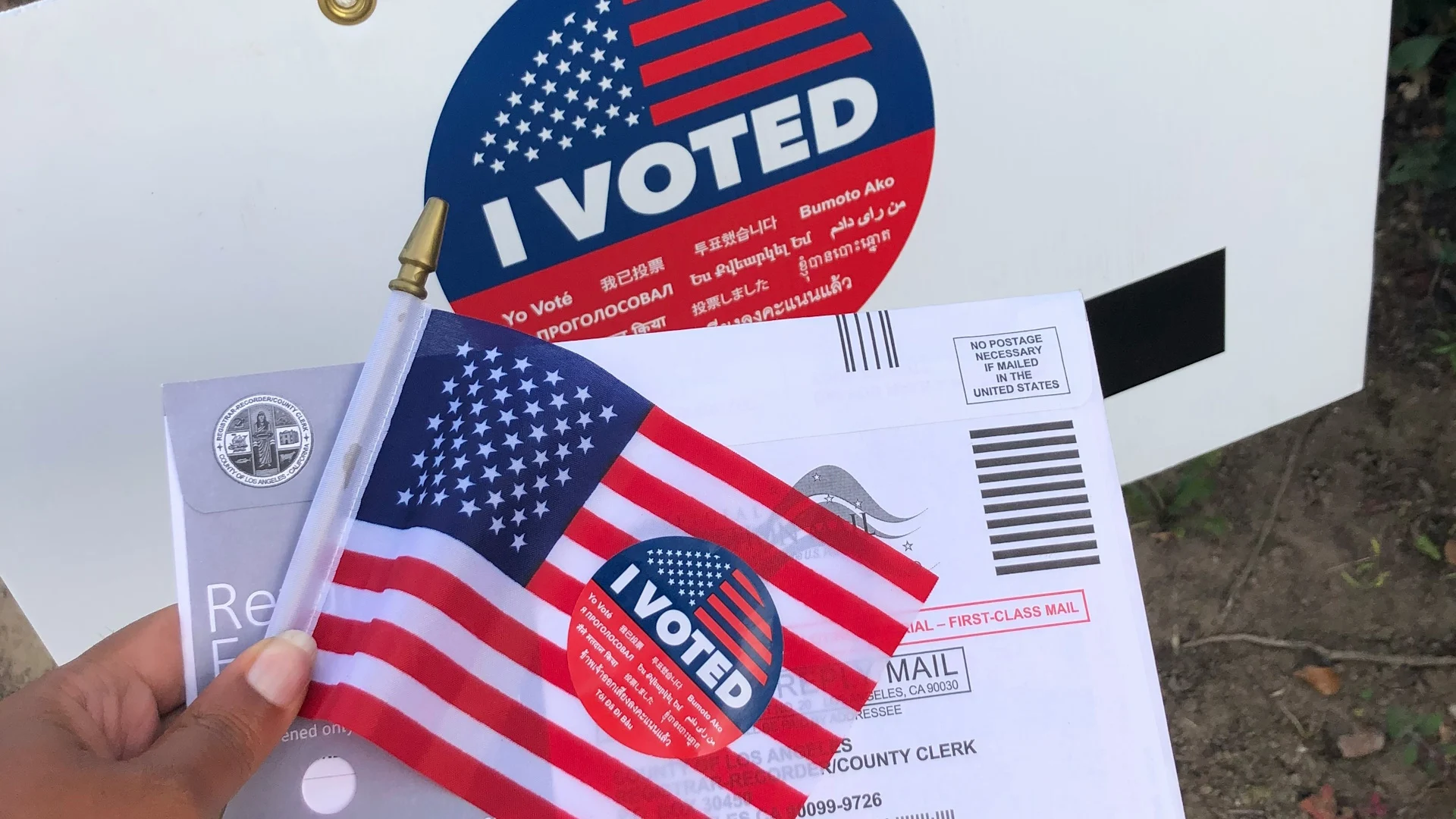
More than 158,000,000 Americans voted in the 2020 presidential election. (Unsplash)
Weather conditions on one specific day aren’t as much of a pressing factor today as just a few decades ago. Most states hold several weeks of early voting in the lead-up to Election Day.
Early voting relieves the crush of more than 150,000,000 people trying to vote on the same day. The practice also gives people ample time to cast their ballots at their convenience—which can include dodging foul conditions.
As a result, rain, snow, and thunderstorms may have less of an impact on elections now than in the past because of early voting. However, there are strong partisan trends in how people vote. Democrats tend to vote early while Republicans usually wait until Election Day—a pattern that could still affect a tight race if a storm hits on the big day.
Helene’s fallout could leave a lasting imprint
It’s not just current weather that can jolt a close contest.
Hurricane Helene wreaked havoc after it slammed into the southeastern United States in the final days of September 2024. Helene’s winds left behind widespread damage throughout the state of Georgia, while immense flooding rains devastated a wide swath of western North Carolina—both of which are swing states.

A satellite image of Hurricane Helene on September 26, 2024. (CIRA/NOAA)
The North Carolina State Board of Elections reported that 1,275,054 voters lived in the 25 North Carolina counties covered by the federal disaster declaration in Helene’s wake. Some of these voters likely lost their homes, and possibly even polling places, during the storm’s widespread floods.
Officials say they’re working to ensure that everyone eligible to cast a ballot can do so if they wish, even if they’ve been affected by the storm and its aftermath.
Big storms can rip open old wounds and shake up a political race in the final stretch. Both criticism and praise of the state and federal response to power outages, wind damage, and flooding entered the political debate in the final month of the presidential race.
All of these factors could have a small but critical impact on the final results. North Carolina was decided by a margin of just 1.34 percent in the 2020 presidential election, while Georgia’s margin of victory in the same race was an even narrower 0.23 percent. Polling averages suggest that both states could be decided by similar margins in this year’s election.
Weather may have played a role in the past
We know weather can impact elections, but has it actually swung a race one way or the other?
Political scientists have long studied the link between foul weather and election results, often finding that rain, snow, and stormy conditions can keep less-motivated voters away from the polls.
A 2007 study found that weather may have boosted John F. Kennedy and George W. Bush to the White House in their respective runs. Kennedy likely benefited from sunny skies during his narrow victory in 1960, while Bush may have eked out a win in 2000 when a rainy Election Day befell the crucial swing state of Florida.
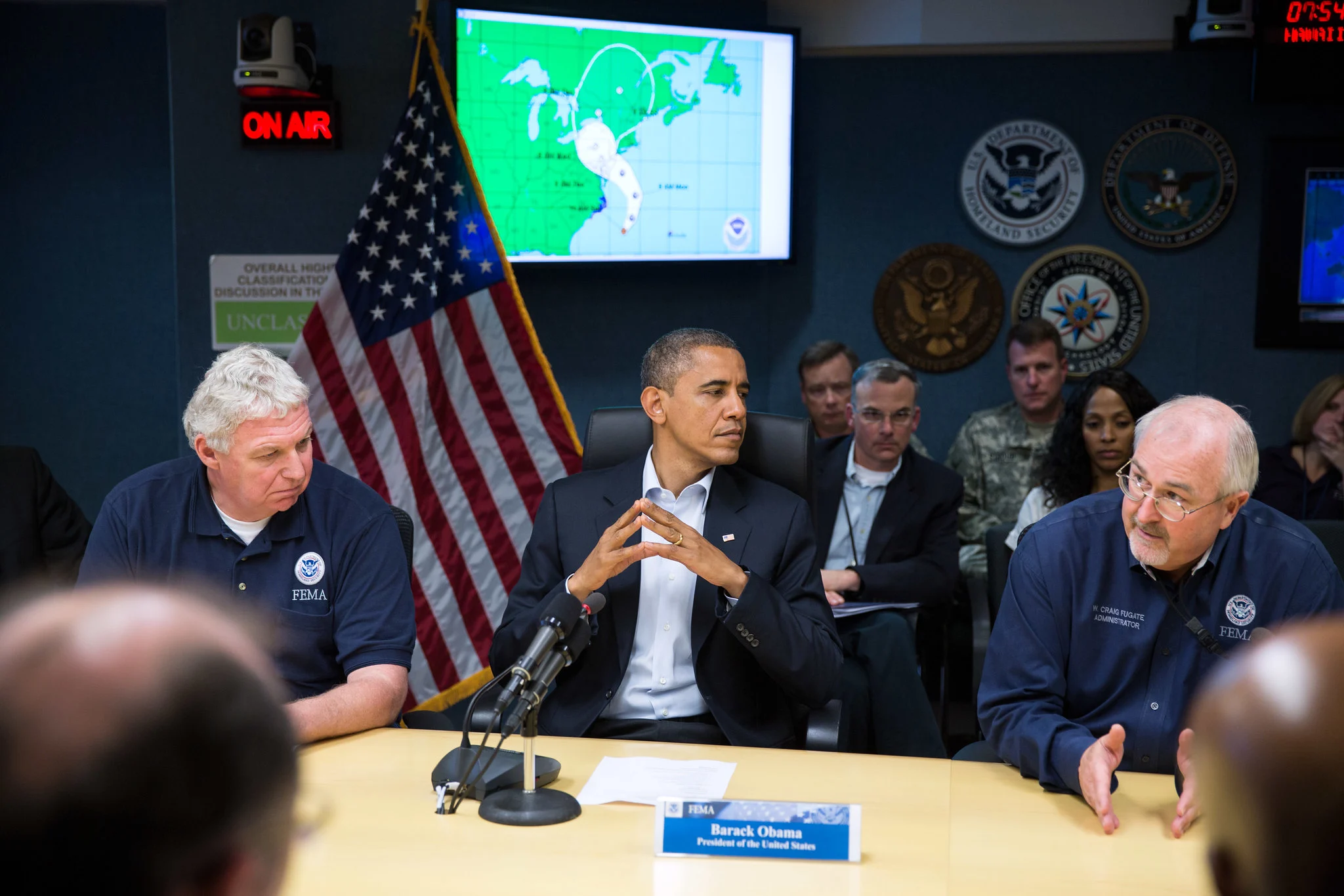
President Barack Obama receives an update at FEMA Headquarters on October 28, 2012, the day before Hurricane Sandy made landfall in New Jersey. (Pete Souza/White House/Flickr)
Severe weather has also hampered elections in the past.
Hurricane Sandy heavily damaged portions of New Jersey and New York just days before the 2012 election, raising fears at the time that the storm may depress turnout in affected areas. The storm’s landfall also contributed to the overall political debate in the final stretch before Election Day.
A major tornado outbreak unfolded on Super Tuesday in 2008, a day on which voters in 22 states held elections to pick each party's nominee for president. Two of the hardest-hit states were Tennessee and Alabama, each of which saw a very close result in their respective Republican primaries.







